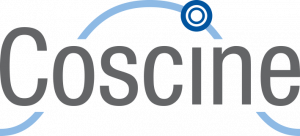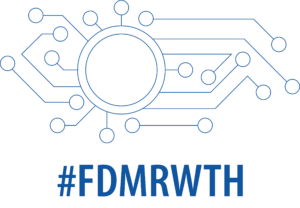
Source: Coscine
Progressive development in the research sector requires not only change, but also efficient cooperation between universities. In this striving for innovation and transparency, the pioneering project Coscine.nrw has taken on a crucial role for the 42 educational institutions in the DH.nrw network. In this blog post, you can find out what this project is all about and how the collaboration is supposed to work.
A Platform for the Future
Coscine.nrw is not just a project, but a pioneering vision for the future of university collaboration. The platform, based on an open-source GitLab repository, provides members of the DH.nrw network with a central place to develop and collaborate on software solutions. With a clear focus on innovation and openness, Coscine.nrw creates a foundation for the evolutionary advancement of research data management.
Issues: Structured Communication for Better Results
The ability to create issues in GitLab is a central component of Coscine.nrw. This feature enables users to document and discuss problems, requirements or ideas in a structured way. Issue tracking facilitates communication between different educational institutions and promotes effective collaboration. From issue tracking to planning new features, Coscine.nrw is a flexible tool that adapts to individual needs.
Epics: Big Goals, Clear Structure
Another forward-looking concept in Coscine.nrw is the use of epics. These are used to organize and track large-scale requirements. An Epic is composed of a collection of Issues that are required to implement the Epic’s central theme. All Epics together represent common goals and larger initiatives that will be realized in the future. This allows educational institutions to better structure and prioritize complex projects and track progress at a higher level.
Innovation Cycle in Higher Education Collaboration
Educational institutions face constant challenges to keep up with the changing demands of students. In this context, Coscine.nrw proves to be a groundbreaking platform that revolutionizes the innovation cycle in the implementation of new requirements. The following figure illustrates how new requirements can be implemented in the future.
The Idea Tank is the first step where ideas and impulses are formulated and collected. Feature requests, new opportunities and solutions to challenges can be discussed here. The Funnel acts as a template for idea development and provides an opportunity for review. Ideas are collected and reviewed before moving further into the process. The Review step is where the reviewed portion is presented. This is where a decision is made as to which ideas should be pursued. During the Analyzing process, Issues are created and discussions are held with developers. This is the point where the ideas move into concrete implementation. The Backlog is used to prioritize the Epics to ensure that the most important ideas are implemented first. Once an Epic has been assigned to the In Progress section, the previously collected ideas of the developers are implemented in the form of Scrum Sprints to work through the necessary issues in an organized manner. Finally, the Finished area presents what has been achieved. This closes the cycle.
Learn more
You don’t want to miss any news about Coscine? Subscribe to our mailing list and visit us on our website!
Do you have any questions or feedback? Then write a message to the IT-ServiceDesk. We are looking forward to your message!
Responsible for the content of this article is Arlinda Ujkani.






Leave a Reply
You must be logged in to post a comment.